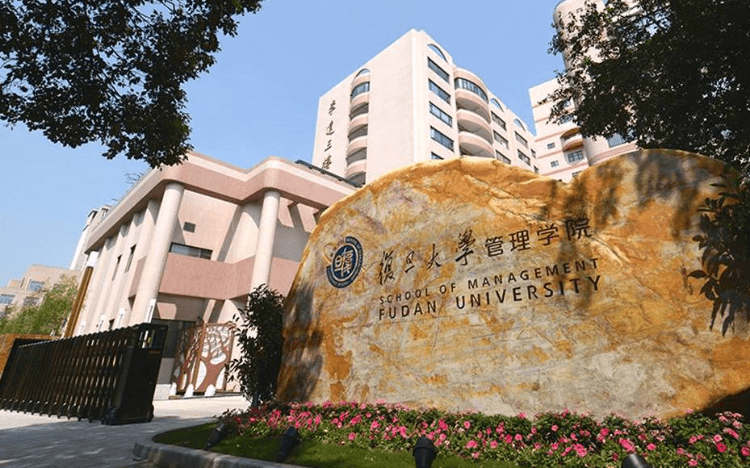China’s economic growth has rocketed since the late 1970s and that’s coincided with technological advancement, a surge in ecommerce for a population of nearly 1.4 billion, and the need for a wave of business school graduates skilled enough to grasp the opportunities China’s growth presents.
Whether you’re a keen entrepreneur, a domestic Chinese MBA candidate, or an international student, the reasons to look east for your MBA are readily apparent.
Here are three reasons to study an MBA in China.
1. Learn at the intersection of eastern and western business
The International MBA (IMBA) at the Fudan University School of Management—ranked 33rd in the world by the FT—immerses students in the business worlds of both the east and west. The program is run in collaboration with MIT Sloan School of Management in the US.
Students on the program study cases that cover the challenges facing both western and eastern businesses. They learn the business fundamentals before being given the choice of numerous Fudan IMBA electives; these include transnational management, business implications for China, leadership, global strategic marketing, successful entrepreneurship, and the challenges of globalization.
“Most current students are looking to learn more about local business here in China,” explains Sun Long, executive director of the Fudan IMBA.
“They also want to know how multinational companies operate in China, what the market and consumer behaviors are here. This value for them is found in China being one of the biggest global markets with huge potential in the future.”

Sun Long is executive director of the Fudan IMBA
Learning to tap into the Chinese market will help graduates of the IMBA advance their career, Sun adds. Tapping into that market requires an understanding of how perspectives differ between multinational companies entering the Chinese market, and domestic companies riding the wave of economic growth.
The faculty on the IMBA are 30-40% international, with first-hand experience of industry. Students also learn from three-to-four visiting professors from MIT Sloan each year—the full-time, two-year program also gives candidates the option to spend a year studying in the US, at MIT Sloan.
Students also apply their skills in an international environment through the IMBA’s Integrated Action Learning Projects (iLab). There are international case challenges as well as business plan competitions.
The iLab—a three credit module on the IMBA—has students working in real time with companies on current business challenges they face. Partner companies have included IBM, Intel, Huawei, McDonald’s China, Pfizer, LG, Volvo, and Bosch.
2. Job opportunities
What’s the key value proposition of an MBA? The career advancement once you graduate.
Economic growth has brought an explosion in opportunities for MBA candidates in China. There are the likes of Chinese companies Tencent and Alibaba, Huawei and ByteDance, who if they want to expand beyond the east will require skilled international MBA grads.
Then there are western companies like Tesla and Microsoft who operate in China, who to tap into market growth will need to balance international expertise with local Chinese knowledge. An MBA will set students up to grab career opportunities with these firms.
“For international students—although local job market requires them to speak local language—we see many international companies bringing their business here or moving their research centers here, which might not require you to directly work facing the market. So, English will become a more acceptable working language in my opinion,” Sun asserts.
The Fudan IMBA doesn’t focus on specific industries alone. Sun explains that students are taught the theory to analyze business problems across industry, across function. That sets them up for an array of jobs.
But where are the growth industries?
“More and more tech companies are increasing their hiring, including the chip making industry, the software industry, and ecommerce industry,” Sun explains.
The advantage of being in Shanghai also means that grads can also tap into the manufacturing growth happening on the outskirts of the city—there’s a strong concentration of car makers located there, Sun adds.
The South Morning China Post also reported that China’s unemployment rate had returned to pre-COVID-19 levels, and that job creation had surpassed the year’s target.
“With good control of COVID-19 I think in China industries are starting to recover from the first half of this year,” says Sun.
3. The size of the Chinese market
A market size of nearly 1.4 billion. That’s more than four times the US—a dream market for entrepreneurs.
“China has its own features and own advanced areas like ecommerce because of its market size,” explains Sun.
“There’s huge opportunity because of this. To start up a company in China—if you have a good service or product—it’s much easier than starting up a company in other parts of the world because of the population. Even if one out of 1000 people like your product, you can make it a viable business.”
The size of the market also means that during this year crisis management has been rolled out on a massive scale. Learning from that during the COVID-19 recovery is invaluable for MBAs.
“Studying in China will give students a different experience and knowledge base because of the way the Chinese government and businesses dealt with covid,” explains Sun—it provides a strong grounding in Chinese business culture.
“The Chinese economy is also still growing, and the advantage for MBA grads’ future career development is huge and will last for a long time.”








